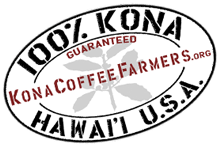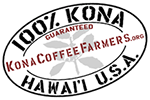From: Bruce Corker <bruce.corker@gmail.com>
Date: Sun, Nov 12, 2017 at 8:00 PM
Subject: KonaRed/Other States’ Protections for Farmers
To: “Sen. Mike Gabbard” <sengabbard@capitol.hawaii.gov>
Cc: Andrew Gomes <agomes@staradvertiser.com>, Richard Creagan <repcreagan@gmail.com>, “Rep. Nicole Lowen” <replowen@capitol.hawaii.gov>, Josh Green <sengreen@capitol.hawaii.gov>, margaret wille <mdwille@gmail.com>, Scott Enright <scott.enright@hawaii.gov>
Dear Mike:
After review of Andrew Gomes’ November 6 Star-Advertiser article about KonaRed’s coffee drink, you asked what other states are doing to protect farmers.
For the context of the November 6 article, attached is a copy of the October 18 letter to Hawaii Department of Agriculture Chair Scott Enright from Cecelia B. Smith, Board Member of the Kona Coffee Farmers Association. That letter triggered the Star-Advertiser article. To date there has been no reply from Chair Enright to Ms. Smith’s letter.
As requested, here are four of many possible examples of actions by other states to protect their farmers:
1—IDAHO’S PROTECTIONS FOR IDAHO POTATO GROWERS: The Idaho Potato Commission was created by the Idaho legislature and is a state agency whose responsibility is the promotion and protection of Idaho Potatoes and the interests of the Idaho’s potato farmers. The IPC holds the federally registered trademark for Idaho Potatoes. The Commission actively guards the interests of farmers by issuing cease and desist notices and filing litigation with respect to violations of that trademark—not just in Idaho, but primarily in other states where violations are found.
The Hawaii Department of Agriculture (HDOA) similarly for many years has held federally registered trademarks for various Hawaii-grown coffees–100% Hawaii Coffee, 100% Kona Coffee, 100% Maui Coffee, and others. However, unlike Idaho, it does not appear that the HDOA has ever taken formal action to enforce these trademarks. With widespread counterfeiting of Hawaii coffees on the mainland [and the mainland marketing of “Kona Blends” with no indication of what percentage (if any) is Kona-grown], the failure of Hawaii to follow the example of Idaho (and the example other states) in protecting agricultural products with active trademark enforcement, invites counterfeiting and deceptive labeling—and puts the names of Hawaii-grown coffees in substantial jeopardy of becoming generic and open to unrestricted use.
The response of the HDOA to the Kona Coffee Farmers Association’s proposal to broaden Hawaii’s coffee labeling law to cover the labeling of products like KonaRed’s “Cold Brew Coffee Original Kona Blend” is equally troubling. The HDOA’s contention that Hawaii does not have jurisdiction over the truthful labeling of products sold in Hawaii if manufactured elsewhere is clearly wrong. Also clearly wrong is the HDOA contention that Hawaii does not have a way to determine the amount of Hawaii-grown coffee in a coffee product. Just as the Idaho Potato Commission can subpoena a marketer’s purchase and production records to prove counterfeiting, Hawaii can do the same to prove unlawful coffee labeling.
With regard to the HDOA’s question of “Where do you draw the line?”, the answer is not complicated. The line is false and misleading labeling. If a manufacturer is labeling a product as “Kona Coffee Candy” and the product is not flavored with Kona coffee, that is false and misleading labeling—currently a violation of Hawaii law. The HDOA should be protecting Hawaii farmers by actively investigating what appear to be false labeling violations—and referring matters for prosecution by the Attorney General, where appropriate. The HDOA should not be seeking to avoid taking steps to protect farmer interests and asking “Where do you draw the line?” If shortage of resources is the cause of the HDOA’s reluctance to act, the legislature should provide adequate funding.
2-—CALIFORNIA’S PROTECTIONS FOR NAPA AND SONOMA WINE GRAPE GROWERS: When Napa and Sonoma wine grape growers were being economically damaged by the use of the names “Napa” and “Sonoma” in trade names on labels of wines from grapes not grown in those counties, California took action. The California legislature enacted a law prohibiting to use of the words “Napa” and “Sonoma” in tradenames on wine labels unless at least 75% of the contents is from grapes grown in the county. When challenged in a lawsuit, California vigorously defended the law and prevailed in court. See Bronco Wine Company vs. Jolly, California S. Ct (2004). For more than a decade, Napa and Sonoma farmers have been economically benefited by this protection against the deceptive use of their regional product names.
By contrast, for more than 25 years Hawaii has permitted the misleading use of its regional coffee names on packages with only 10% coffee grown in that region—and without identification of the origin of the 90%. [Note–In 2007 the Hawaii Legislature adopted SCR No. 102 with a factual finding that “existing labeling requirements for Kona coffee cause consumer fraud.”] In the Kona Region alone millions of dollars are lost each year by coffee farmers because the excess profits from this deceptive labeling flow to the mainland owners of the coffee blending companies and not to the farmers. [See the economic study of San Francisco-based resource economist Marvin Feldman, attached.] For years the Hawaii legislature has sided with blending companies and failed to enact legislation supported by farmers to reform the deception permitted by the current coffee labeling law. By way of example, in the 2017 Session, the Legislature failed to adopt HB256 (51% minimum genuine content and identification on the label of non-regional coffee in blends)—despite calls from the Hawaii County Council [Hawaii County Council Resolution No. 501-14], the Hawaii State Democratic Party Convention [BUS/AG Resolution 2016-03] for the adoption of these measures, and the inclusion of HB256 in the Democratic Party’s 2017 Legislative Package.
And coffee farmers are not alone. Hawaii also has failed to follow the California example to protect its macadamia nut farmers. Hawaii has taken no action to stop the use of a prominent Hawaii place name (Mauna Kea) for the deceptive marketing of foreign-grown macadamia nuts.
3—GEORGIA’S PROTECTIONS FOR VIDALIA ONION FARMERS: With the assistance and advice of the University of Georgia and the Georgia Department of Agriculture, the Georgia legislature enacted the Vidalia Onion Act in 1986 to protect the economic interests of the state’s Vidalia Onion farmers and the commercial integrity of their product. The State of Georgia holds the federal Vidalia Onion trademark. The Georgia Attorney General enforces the trademark against infringement with cease and desist notices and litigation in a manner similar to that used by the Idaho Potato Commission.
Maui Onions are sweet onions similar in many respects to Vidalia Onions. At least one mainland company has marketed “Maui Onion Potato Chips” flavored with generic onion powder, not derived from Maui Onions. There is no apparent record of Hawaii having taken any actions—similar to the actions of Georgia–to protect the name of Maui Onions from this type of deceptive labeling.
4—VERMONT’S PROTECTION OF VERMONT MAPLE SYRUP PRODUCERS: Vermont has recognized that to maintain and expand production by, and income levels for, Vermont’s Maple Syrup farmers, Vermont must (1) actively market this product beyond Vermont’s borders in other states and countries; and (2) actively protect the integrity and identity of Vermont Maple Syrup from counterfeiting and false labeling. Vermont has done both—and there are now more than 4 times the number of maple sugar tree taps in the state than in 2000. To maintain income levels for farmers, Vermont prohibits the use of the name “Vermont Maple Syrup” on packages containing less than 100% Vermont-produced syrup. There are no “10% Vermont Maple Syrup Blends.” The state actively pursues trademark violations— including asserting jurisdiction over violations occurring in other states. Vermont “draws the line” to provide protections for Vermont Maple Syrup name with respect to maple flavoring in candy and other products.
Hawaii farmers of coffee, macadamia nuts, Maui Onions, chocolate, tea, flowers and other crops would benefit from programs–similar to Vermont’s program for its Maple Syrup–to expand markets and protect the regional names of these Hawaii products.
Mike, as we approach the 2018 Session, Kona’s coffee farmers encourage you to actively support HB256 and legislation to expand the coverage of HRS 486-120.6. We look forward to working with you.
Best Regards,
Bruce Corker
Cc: Andrew Gomes
Richard Creagan
Nicole Lowen
Josh Green
Margaret Wille
Scott Enright
>>>>>>>>>>>>>>>>>>>>>>
On Mon, Nov 6, 2017 at 2:33 PM, Sen. Mike Gabbard <sengabbard@capitol.hawaii.gov> wrote:
Aloha e Bruce,
I hope you’re doing well. I read the front page article in the Star Advertiser this morning about coffee beverage labeling: http://www.staradvertiser.com/2017/11/06/business/kona-coffee-farmers-see-red-in-konared-coffee-drink-contents/?HSA=c8c43998c2dddeb099c1ac36a78f9e2e3c00ed05
Do you have any information on what other states are doing to protect farmers?
Me ke aloha pumehana,
Senator Mike Gabbard
Chair, Agriculture and Environment Committee

